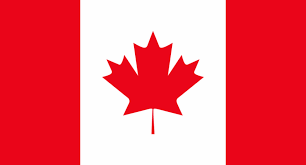Chemycal has been acquired by 3E
Learn MoreChemycal has been acquired by 3E
Learn MoreDiscover how Chemycal PRO helps you boosting your regulatory monitoring:

EXECUTIVE SUMMARY
The Government of Canada has committed to introducing labelling rules that prohibit the use of the chasing-arrows symbol on plastic products unless 80 per cent of Canada’s recycling facilities accept, and have reliable end markets for, these products. These rules would seek to improve plastic packaging design, improve public participation in recycling systems, reinforce public trust in recycling, and improve the performance of recycling systems to generate more and higher-quality post-consumer recycled plastics. In addition, the Government is proposing to introduce rules to regulate the use of terms such as “compostable”, “degradable” or “biodegradable” in the labelling of plastic packaging and single-use items.
Currently, plastic packaging makes up approximately half of all plastic waste, but less than 15% of plastic packaging is recycled. Packaging suffers from low collection rates, but also high losses during the sorting and processing stages (approximately 30%). In addition, over 20,000 tonnes of plastic packaging was released into the environment as pollution in 2018. These poor outcomes stem in large part due to packaging design choices that limit recyclability and contaminate recycling and organics streams , and labels that provide inaccurate information to Canadians on whether an item should be put in a recycling or organics bin. The combination of poor outcomes, packaging complexity and inaccurate labelling risks undermining public trust in recycling systems, which could have larger effects on Canada’s ability to transition to a circular economy for plastics.
The Government of Canada is therefore proposing to introduce rules that would require producers to assess their packaging or single-use plastic item to determine whether it is recyclable. Recyclability would be measured in terms of whether the item
The rules would apply to all methods for communicating recyclability, not just the use of the chasing arrows symbol (e.g., expressions such as “100% recyclable”). Producers would have to label all their plastic packaging or single-use plastic items as recyclable or not recyclable (or a mix, such as for different components or if an item is recyclable in one region but not another). However, the Government would not specify what a recyclability label would need to look like (except for certain minimum standards such as legibility).
To assess their packaging or single-use plastic item for recyclability, producers would be required to select a compliance mechanism, such as a calculator, guideline or third-party labelling program. A compliance mechanism would need to meet certain minimum standards and follow a systematic process. The recyclability label applied to the packaging or single-use plastic item would reflect the results of the assessment conducted using the compliance mechanism.
Accountability would rely on transparency and disclosure. Producers would be required, on request, to disclose to the Minister both the compliance mechanism chosen and the assessment of a particular package or single-use plastic item. In addition, a producer would need to explain, in writing, how an item is recyclable or not to anyone who asks (though this obligation could be discharged via proactive disclosure, such as on a company’s website or the use of QR codes or other digital labels).
For proposed compostability labelling rules, a producer would require third party certification of the plastic packaging or single-use item to a specified standard or standards for compostability. Outside of this exception, the labelling of applicable plastic products as degradable, biodegradable or compostable, would be prohibited. Producers would also need to be able to provide written evidence of the certification on request.
The Government is also considering ways to promote and support compliance with labelling rules. These could include, for example, data collected from surveys of what is accepted in public recycling systems across Canada, a technical committee of experts to advise on implementation, as well as guidelines and other tools to facilitate recyclability assessments.
Written feedback to this consultation paper is requested by October 7, 2022.
CONTINUE READING ON www.cosmeticsalliance.ca
2013 © MyChemicalMonitoring. ALL Rights Reserved. About Us | Terms and Conditions